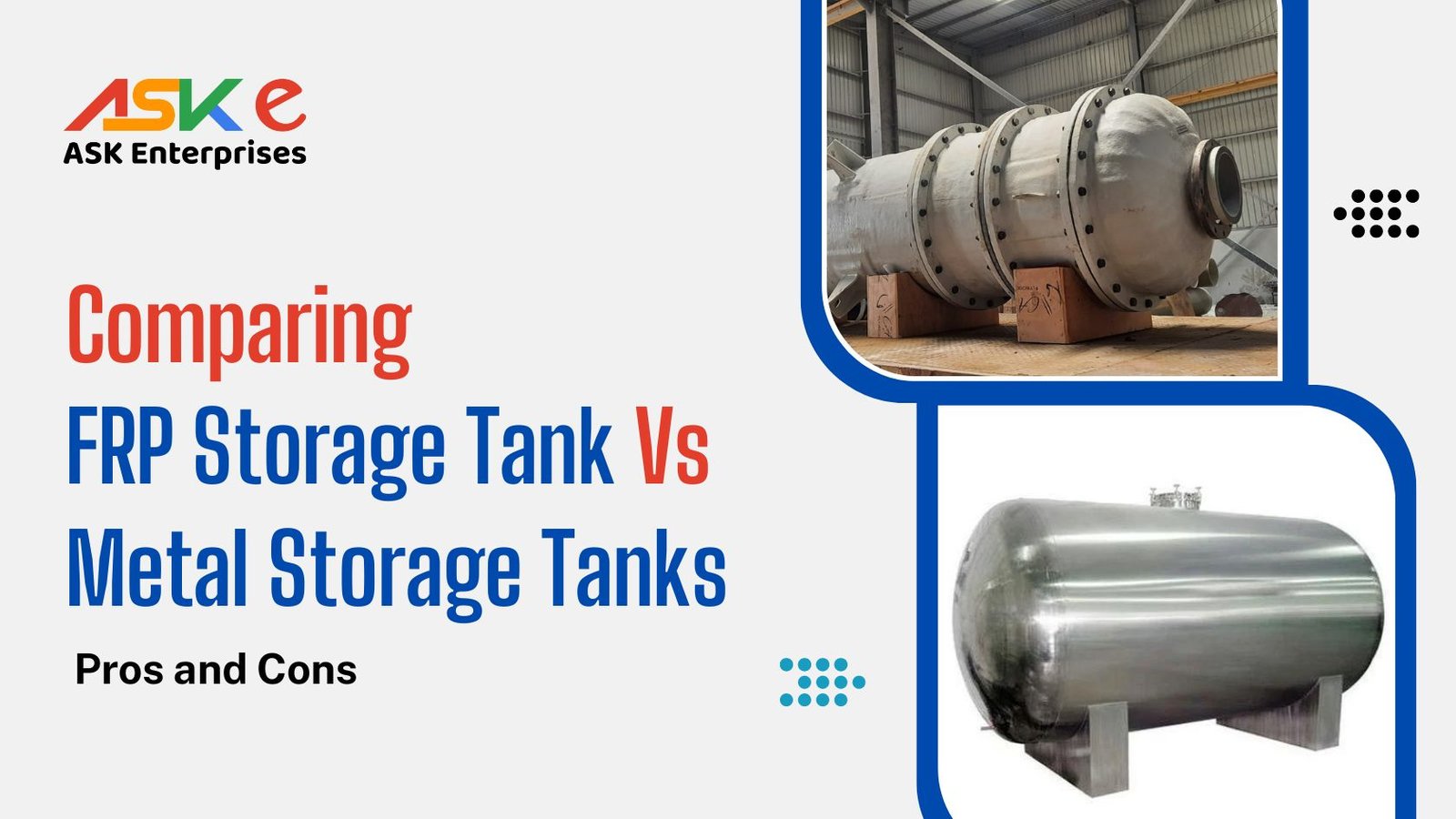When selecting storage tanks for industrial applications, it's essential to choose the right material that meets your specific needs. Fiber Reinforced Plastic (FRP) and metal are two commonly used materials, each with its own set of advantages and disadvantages. In this article, we'll compare FRP and metal storage tanks in detail to help you make an informed decision.
What Are FRP Storage Tanks?
FRP storage tanks are made from a composite material consisting of a polymer matrix reinforced with fibers, typically glass fibers. This combination results in a material that is both strong and lightweight.
What Are Metal Storage Tanks?
Metal storage tanks are usually made from materials such as stainless steel, carbon steel, or aluminum. These tanks are known for their strength and durability.
Pros and Cons of FRP Storage Tanks
Pros
- Corrosion Resistance
- Detail: FRP tanks are highly resistant to corrosion from chemicals, acids, and other harsh substances, making them ideal for storing corrosive materials.
- Benefit: Long-term durability in environments that would quickly degrade metal tanks.
- Lightweight
- Detail: FRP tanks are significantly lighter than metal tanks, making them easier to transport and install.
- Benefit: Lower transportation and installation costs.
- Low Maintenance
- Detail: FRP tanks do not require frequent maintenance such as painting or coating to prevent rust.
- Benefit: Reduced maintenance costs and downtime.
- Customizability
- Detail: FRP tanks can be molded into various shapes and sizes and can be customized with additional features like PVDF lining for enhanced chemical resistance.
- Benefit: Tailored solutions to fit specific industrial needs.
- Non-Conductive
- Detail: FRP is non-conductive, making it safer in environments where electrical hazards are a concern.
- Benefit: Increased safety in certain industrial applications.
Cons
- Initial Cost
- Detail: FRP tanks can be more expensive upfront compared to some metal tanks.
- Drawback: Higher initial investment.
- Temperature Sensitivity
- Detail: FRP tanks can be less effective in extreme temperature environments, especially at very high temperatures.
- Drawback: Limited use in high-temperature applications without special modifications.
- Impact Resistance
- Detail: FRP tanks may be less resistant to severe physical impacts compared to metal tanks.
- Drawback: Potential for damage in high-impact environments.
Pros and Cons of Metal Storage Tanks
Pros
- Strength and Durability
- Detail: Metal tanks, particularly those made from steel, are extremely strong and can handle high-pressure environments.
- Benefit: Suitable for applications requiring high structural integrity.
- High Temperature Tolerance
- Detail: Metal tanks can withstand higher temperatures compared to FRP tanks.
- Benefit: Ideal for high-temperature applications.
- Longevity
- Detail: When properly maintained, metal tanks can last for many years.
- Benefit: Long service life in various conditions.
- Recyclability
- Detail: Metal is highly recyclable, making metal tanks an environmentally friendly option at the end of their life cycle.
- Benefit: Reduced environmental impact.
Cons
- Corrosion
- Detail: Metal tanks are susceptible to rust and corrosion, especially when exposed to harsh chemicals or moisture.
- Drawback: Requires regular maintenance and protective coatings.
- Weight
- Detail: Metal tanks are heavy, making them more difficult and expensive to transport and install.
- Drawback: Higher transportation and installation costs.
- Maintenance Costs
- Detail: Regular maintenance is necessary to prevent corrosion and ensure longevity.
- Drawback: Increased long-term costs due to maintenance and repairs.
- Limited Customization
- Detail: Metal tanks are less customizable in terms of shape and specific chemical resistance compared to FRP tanks.
- Drawback: Limited adaptability for unique storage requirements.
Industry Applications
Chemical Industry
- FRP Tanks: Preferred for their excellent chemical resistance and low maintenance. Suitable for storing acids, bases, and other corrosive chemicals.
- Metal Tanks: Used where high structural integrity and temperature resistance are needed, often with protective coatings to prevent corrosion.
Pharmaceutical Industry
- FRP Tanks: Ideal for environments where non-reactivity and purity are critical. Customizable for specific storage needs.
- Metal Tanks: Employed for their durability and ability to be sterilized, though often lined to prevent corrosion.
Oil and Gas Industry
- FRP Tanks: Used for storing corrosive chemicals and water treatment processes due to their corrosion resistance.
- Metal Tanks: Favored for crude oil storage and high-pressure applications, requiring regular maintenance to prevent rust.
Conclusion
Both FRP and metal storage tanks have their own unique advantages and disadvantages. The choice between the two depends largely on the specific requirements of the application, including factors like chemical exposure, temperature conditions, maintenance capabilities, and budget constraints.
FRP storage tanks are highly resistant to corrosion, lightweight, and require low maintenance, making them suitable for chemical, pharmaceutical, and some oil and gas applications. However, they can be more costly initially and less effective in high-temperature environments.
Metal storage tanks offer unmatched strength, durability, and high-temperature tolerance, making them ideal for applications requiring high structural integrity and temperature resistance. They do, however, require regular maintenance to prevent corrosion and are heavier, leading to higher transportation and installation costs.
At ASK Enterprises, we specialize in providing both FRP and metal storage solutions tailored to meet the unique needs of various industries. Contact us today to discuss your specific requirements and find the perfect storage solution for your business.

